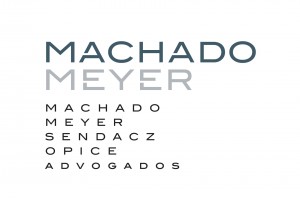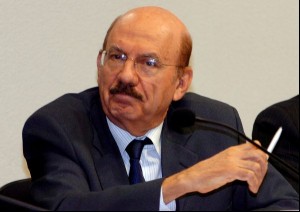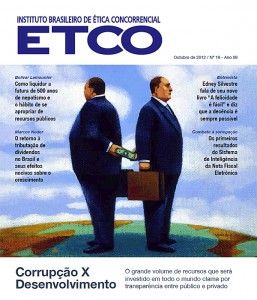The Municipal Comptroller General is investigating the existence of a supposed fraud in the electronic auction carried out for the contracting of cleaning and conservation services for schools and Unified Educational Centers (CEUs) in the municipality. The investigation request was made by the Municipal Department of Education, responsible for contracting the services.
According to a report published last Tuesday (5) by the newspaper “O Estado de S. Paulo”, the names of the winning companies in the bid were informed to the newspaper on July 25, by telephone and e-mail, a hour and thirty minutes before the start of trading.
Based on a preliminary analysis by the Comptroller General of the Municipality, which showed low competitiveness among the companies that competed in the electronic auction, the City of São Paulo revoked the bid. Mayor Fernando Haddad argued that the person who made the complaint to the newspaper report to the Comptroller to contribute to the investigations.
The Controllership appointed a team to analyze the bidding process. According to the general controller of the municipality, Mário Vinícius Spinelli, the entire procedural rite will be mapped in search of evidence of cartelization. He also highlighted the importance of effective participation by society, denouncing any irregularities, so that crimes against the administration are curbed.
If the practice of cartel is proven, an accountability administrative process will be initiated by the Comptroller. Companies whose participation in the fraud is proven will be subject to the application of Law No. 12.846. Regulated in May by the Municipality of São Paulo, the so-called Anti-Corruption Law provides for the application of fines of up to 20% of gross revenue to companies that benefit from unlawful acts committed against the public administration.
The Controllership will also forward the information obtained in the investigations to the Public Ministry of the State of São Paulo and to the Administrative Council for Economic Defense (CADE).
Source: Portal of São Paulo City Hall


 Machado, Meyer, Sendacz and Opice Advogados, through their practice area Compliance and Corporate Integrity, led by lawyer Leonardo Ruiz Machado, will support the Brazilian Institute for Competition Ethics (ETCO) in the actions developed by the entity with a focus on supporting the fight against corruption. The partnership was built in a meeting held with ETCO's executive president, Evandro Guimarães, on July 3, at the institute's headquarters in São Paulo.
Machado, Meyer, Sendacz and Opice Advogados, through their practice area Compliance and Corporate Integrity, led by lawyer Leonardo Ruiz Machado, will support the Brazilian Institute for Competition Ethics (ETCO) in the actions developed by the entity with a focus on supporting the fight against corruption. The partnership was built in a meeting held with ETCO's executive president, Evandro Guimarães, on July 3, at the institute's headquarters in São Paulo. Jorge Hage, Chief Minister of the Comptroller General of the Union (Photo: Agência Brasil)
Jorge Hage, Chief Minister of the Comptroller General of the Union (Photo: Agência Brasil)

